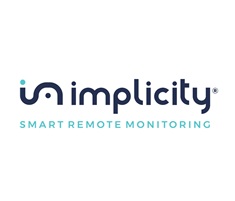 Implicity has revealed new findings from its EVIDENCE-RM study, which—by leveraging extensive data from the French National Health Data System (SNDS)—has demonstrated clear clinical and medico-economic benefits associated with the company’s universal monitoring system (UMS) compared to conventional, manufacturer-specific systems, including Abbott, Biotronik, Boston Scientific, and Medtronic. That is according to a recent press release from Implicity.
Implicity has revealed new findings from its EVIDENCE-RM study, which—by leveraging extensive data from the French National Health Data System (SNDS)—has demonstrated clear clinical and medico-economic benefits associated with the company’s universal monitoring system (UMS) compared to conventional, manufacturer-specific systems, including Abbott, Biotronik, Boston Scientific, and Medtronic. That is according to a recent press release from Implicity.
The study was recently published in the journal Heart Rhythm, and analysed clinical outcomes and costs for more than 69,000 patients with implantable cardioverter-defibrillators (ICDs) and defibrillators with cardiac resynchronisation therapy (CRT-Ds).
Implicity notes in its recent release that patients monitored remotely using Implicity’s platform showed increased survival rates, and a reduction in both the number and duration of all-cause and heart failure-related hospitalisations, resulting in substantial healthcare cost reductions.
Key findings attributed to the company’s IM009² platform include:
- A 26% reduction in mortality (hazard ratio [HR], 0.74; 95% confidence interval [CI], 0.73–0.77; p=0.001)
- A 4% decrease in heart failure hospitalisations, total corrected healthcare costs and mean duration of hospitalisation
- A 17.8% decrease in hospital-related costs, primarily driven by decreased costs in cardiovascular disease care
- An incremental cost-effectiveness ratio (ICER) of approximately –US$112 (–€103) per day alive and out of hospital (DAOH) based on the French healthcare system
“Managing patients with ICDs and CRTs presents considerable challenges, since they are at high risk of hospitalisation due to arrhythmias and heart failure,” said Niraj Varma (Cleveland Clinic, Cleveland, USA). “The EVIDENCE-RM study clearly demonstrates that a universal monitoring solution operating alert-based remote monitoring can significantly reduce these risks, improving patient outcomes and substantially lowering healthcare costs. This is an important advancement in our ability to proactively manage patients with ICDs and CRTs.”
“These findings mark a pivotal moment in remote cardiac care and prove Implicity’s effectiveness with unparalleled clinical results,” added Implicity chief executive officer (CEO) Arnaud Rosier. “A 26% reduction in mortality and better use of healthcare resources highlight the impact of universal remote monitoring, driven by AI [artificial intelligence], over fragmented manufacturer-specific systems. Implicity is committed to driving innovation so that every cardiac patient receives proactive, efficient care.”









